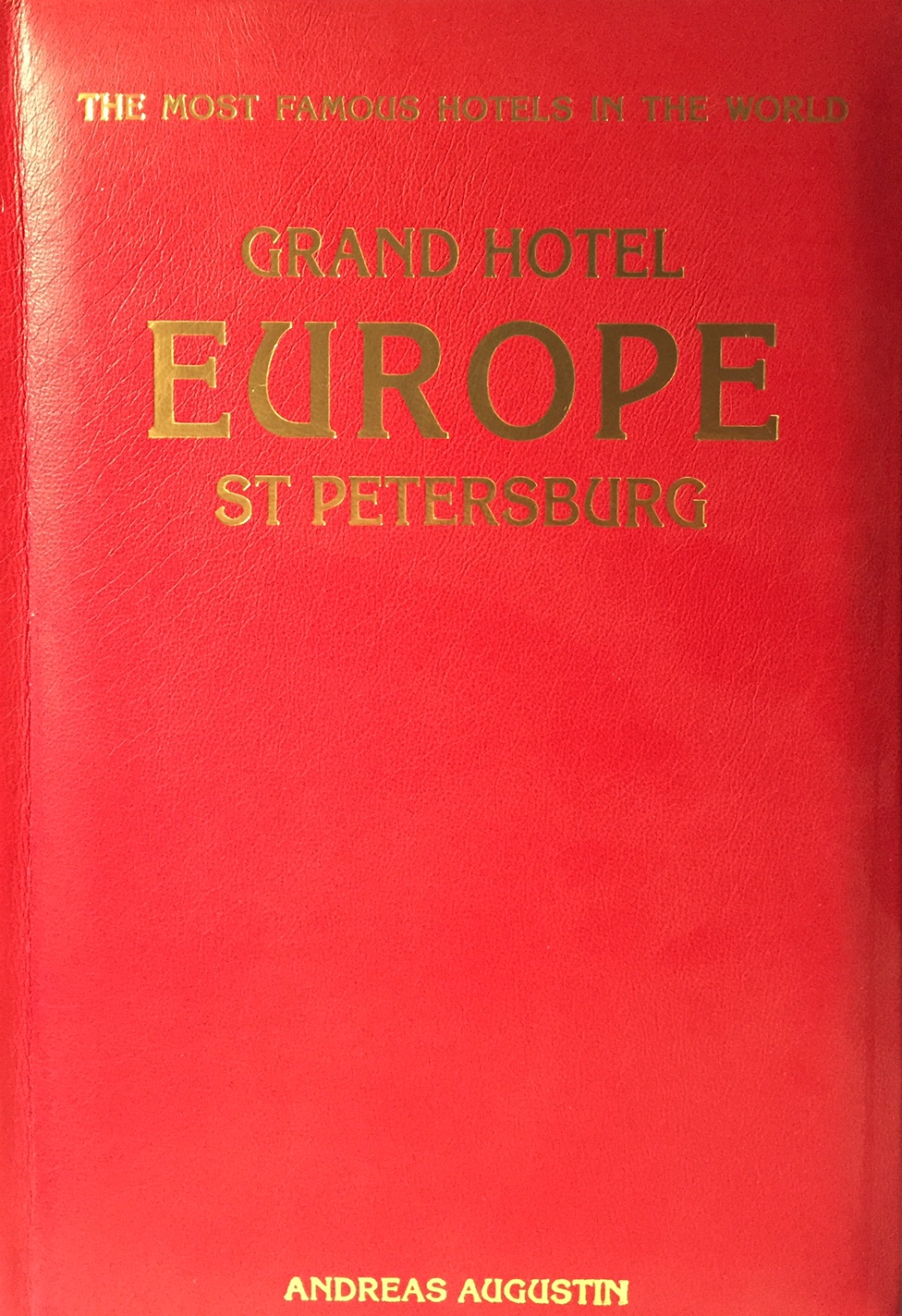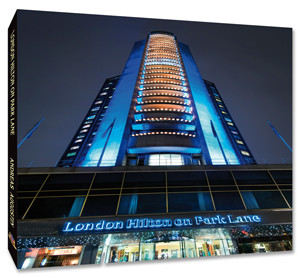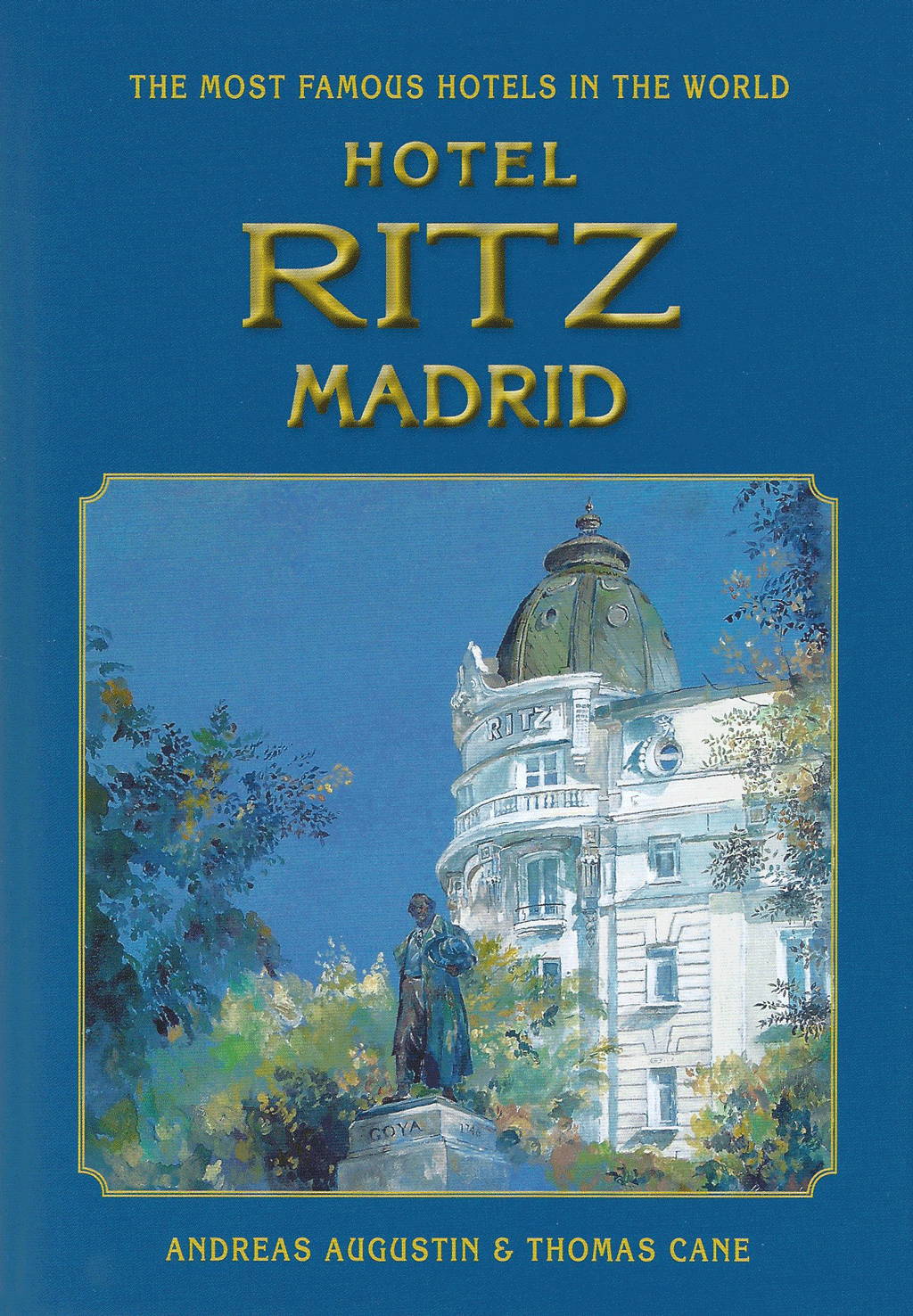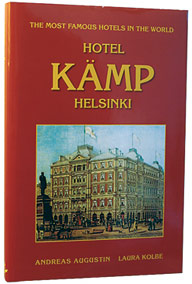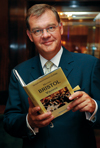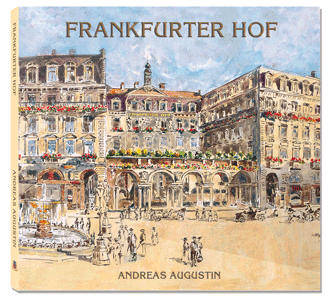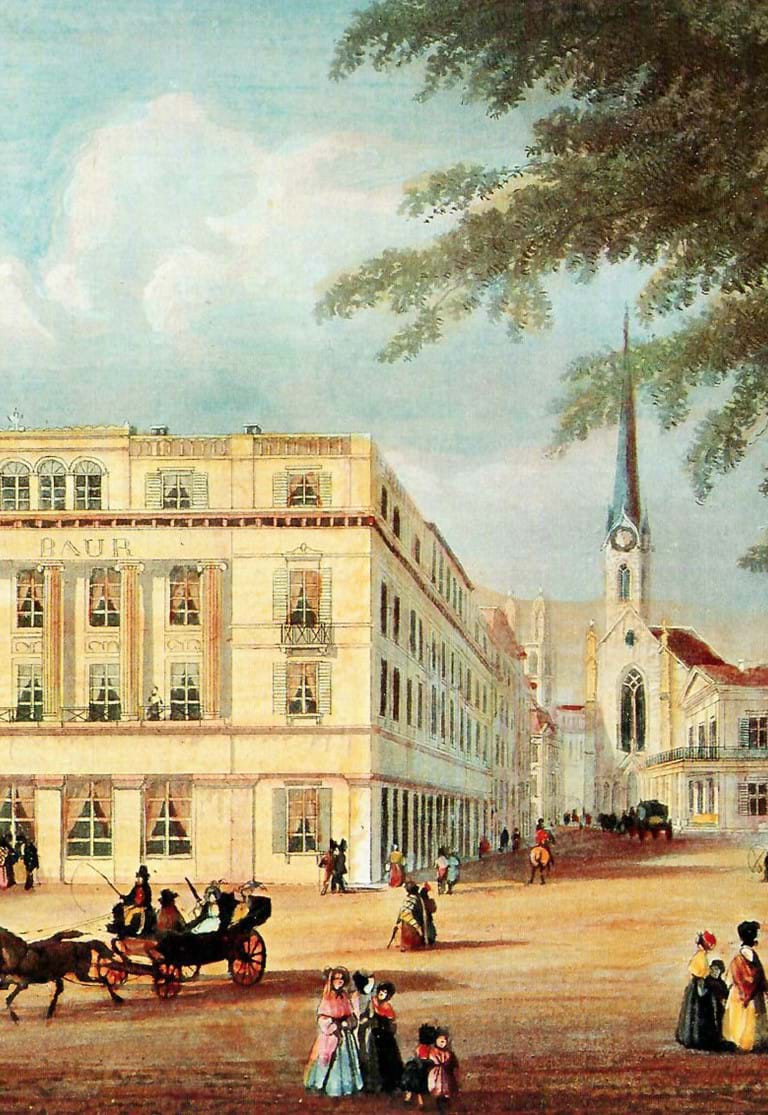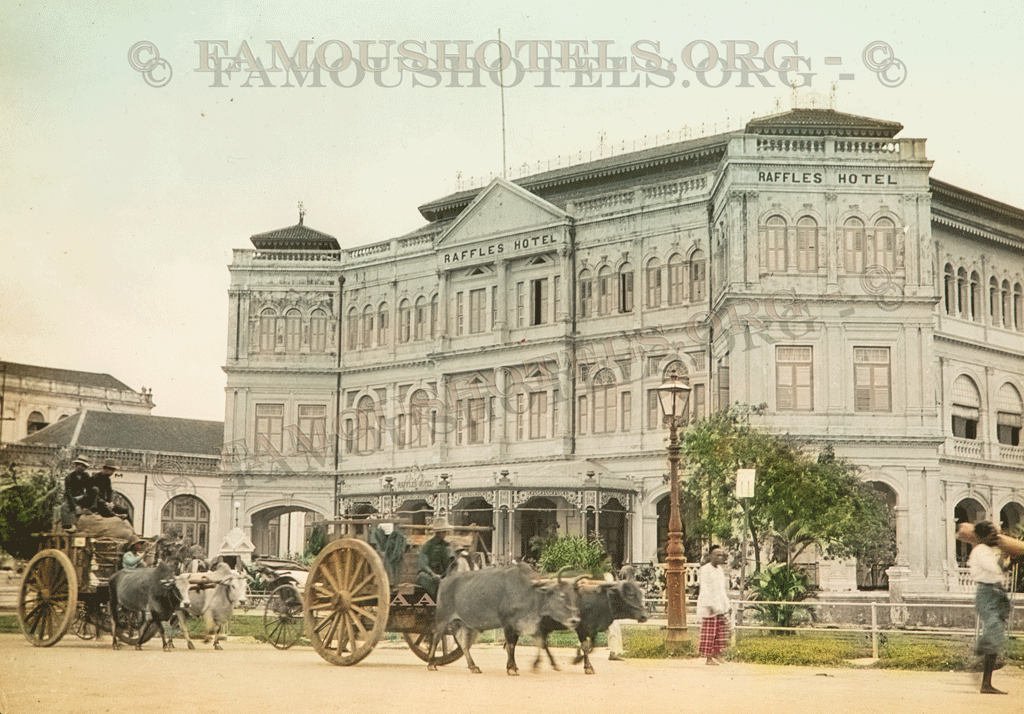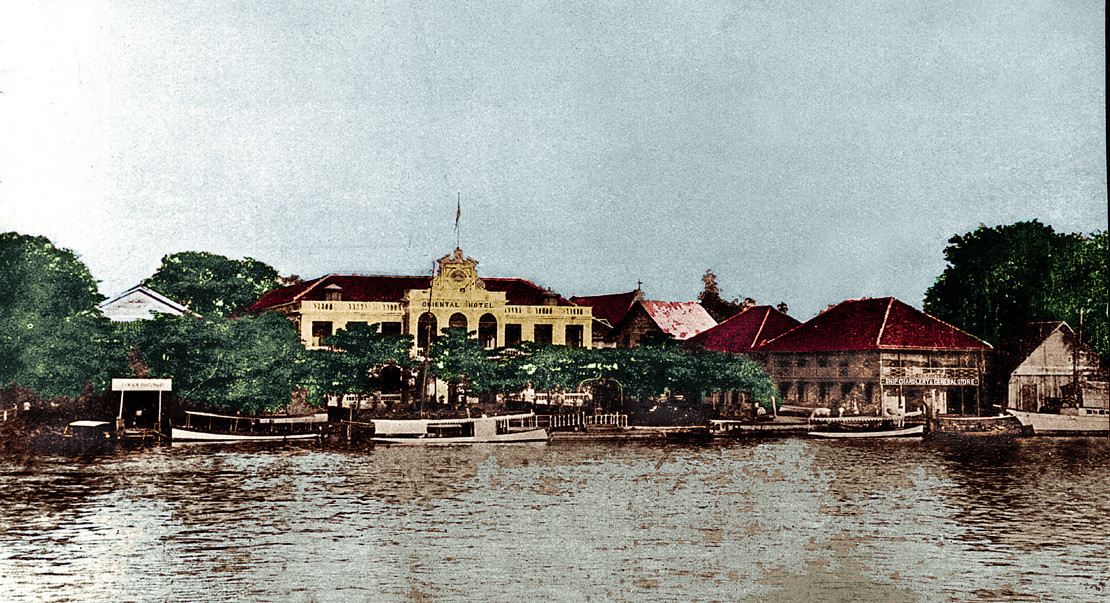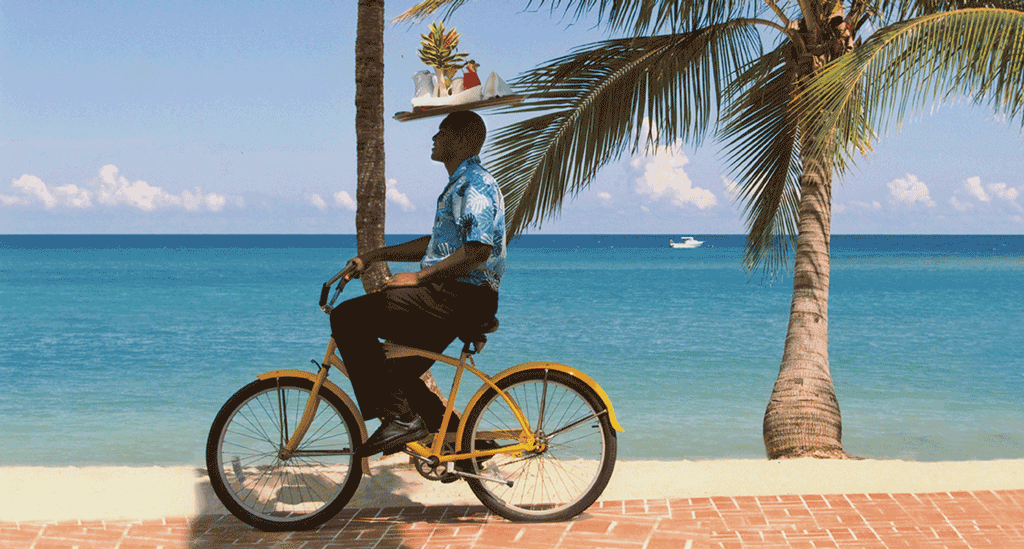Grand Hotel Europe – St. Petersburg, Russia (English)
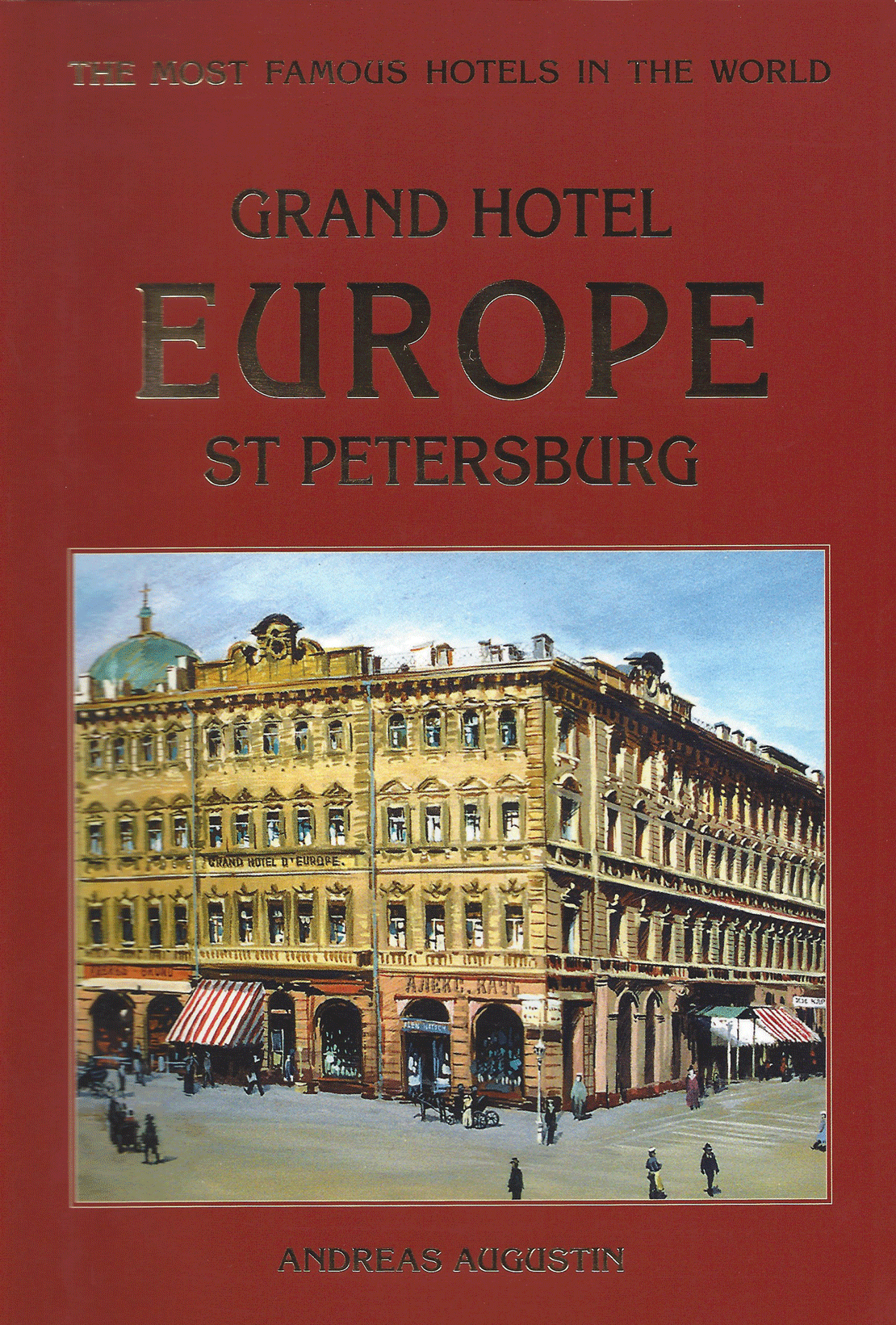
Author
Andreas Augustin
Pages
160
Photographs
Illustrations
over 160; Cover painting by Evgeniy Rusinov
Leather-bound edition
Yes
Binding
Hardcover (real cloth bound / gold stamping / dust jacket)
Includes
2 postcards, 2 reading marks (HIS and HERS)
ISBN
978-3-900692-22-3
Size/Weight
160 x 235 mm, 720 g
Related Hotel
Price: € 43.00
Add to cartA fine leather bound edition of this book is available.
Updated, with sparkling new photographs and an even richer collection of historical material, colour of the cover may vary (blue or red).
The tsarists regarded it as their playground, the Communists turned it into the 'House of the Soviet Clerk' and perestroika changed it into Russia’s first five-star hotel.
Along Nevsky Prospekt and Mikhailovskaya Street stretches one of the finest hotels of the continent: the Grand Hotel Europe. Ever since it opened its doors in 1875, it has stood as testimony to the excellence of Russian hospitality. The great master of Russian music, Pyotr Ilyich Tchaikovsky spent his honeymoon there, Johann Strauss occupied "comfort room No 26" for 14 days, for Turgenev there was no better place in the whole of St Petersburg, Rasputin dined there, George Bernard Shaw met Maxim Gorky in a private dining room, tenor Enrico Caruso advised soprano Luisa Tetrazzini to go on and to become the "soprano of the world", Dimitri Shostakovitch played a sonata for Sergey Prokofiev in his suite, Elton John performed at the restaurant, President Clinton took a rest for four hours in the Lidval Suite. Jane Fonda cooked her own food there. Queen ElizabethII praised the hotel’s kitchen and - talking about Royals: the Romanovs, Russia's eminent tsars family, is still gathering at the Grand Hotel for family reunions! Where else? This is the story of a beautiful city and the legend of Russia’s oldest grand hotel.
‘Welcome to the Grand Hotel Europe, Sir,’ the doorman says, the pride in his voice apparent.
The term ‘Grand’ is certainly a fitting one in terms of the hotel’s reputation, its historic stature, and its physical presence. The façade of the hotel stretches 160 metres along Mikhailovskaya Ulitsa (Street), from the bustling Nevsky Prospekt to the peaceful Arts Square where the statue of Pushkin stands. St. Petersburg, constructed on over 30 islands, is the ‘Venice of the North’ (© Théophile Gautier, page 41). With its palaces, churches and monuments, this city is certainly one of the most beautiful historic settings on earth. We are staying at the Grand Hotel Europe, the hotel where Tchaikovsky spent his honeymoon, where George Bernard Shaw saw Maxim Gorky and where Dmitri Shostakovich played a sonata for Sergei Prokofiev. Let us lean back in one of the comfortable armchairs at the Lobby bar and savour the atmosphere of this grand hotel.
While we listen to the piano player, our minds wander back to the days when St. Petersburg was the capital of the mighty Russian Empire. In the mid-19th century, St Petersburg had about 600,000 inhabitants. Within the first years of the Grand Hotel Europe’s existence – it opened in 1875 – this figure rose to over 800,000. The city was the hub of six railways (described in the Encylopedia Britannica, 1889 as ‘two towards West to the Gulf of Finland and to Port Baltic’ (today Estonia), ‘two towards Warsaw and Moscow and two short ones to Oranienbaum and Tsarskoye Selo’). The city was the centre of science and fine arts. Its Academy of Sciences rendered important services in the exploration of Russia, the Pulkovo astronomical observatory’s yearly publications enjoyed a great reputation, the Society of Naturalists and the Physical and Chemical Society issued invaluable publications. Four medical societies and an Archaeological Society, a 120 years old Commercial Society, a Technical and Navigation Society, they all were of great importance. St. Petersburg’s music conservatory gave superior musical instruction, making the city – with one Imperial theatre for the ballet and one for the opera – the cradle of Russian opera, ballet and music. At the public library a collection of over one million books could be found, including 50,000 ‘Rossica’ (everything published in Russia). 120 periodicals were circulated (the right to publish political papers was in the hands of very few editors and severe censorship made it harder every day). The Hermitage Art Gallery contained a fine collection of the Flemish school and some Russian paintings, some good specimens of the Italian, French and Spanish schools and invaluable treasures of the Greek and Scythian antiquities.
This was S.t Petersburg when the hotel opened. Follow me, my dear fellow traveller, into the story, the tales and legends of this grand hotel.
Andreas Augustin
presents
The Grand Hotel Europe St Petersburg
in the series
The Most Famous Hotels In The World
This book was compiled and written at the Grand Hotel Europe in St Petersburg, in London and in Vienna in 1996 and edited and revised in 2002 and in 2007.
Very special thanks go to Stephan Kaminski, general manager of the Grand Hotel Europe in 1996, who made this book possible, and to Brigitte T Gruber, who suggested it in the first place.
Thanks in loose order to: Thomas Noll, the general manager of the hotel who supported the idea of a new book in 2006.
We thank the historian Larissa Gavrova for her research for the first edition of the book, St Petersburg writer Igor Bogdanov spent valuable hours with the author to explain the history of the city. We are also especially grateful to Wladimir B Geracemov, who shared with us some good old Grand Hotel stories and to Kaapralova Lidea Fedorovna at the Saltikov-Shedrin Russian National Library. We are very grateful to Viktoria Struzman, the architect of the renovations of the hotel who explained her work to us.
Last but not least many thanks to Andrew Williamson who joined the team with a historian’s expertise and some 300 pages of research material.
All rights in this publication are reserved. No part of this book may be reproduced, stored in a retrieval system or transmitted in any form or by any means, electronically, mechanical, photocopying, recording, or otherwise without the prior permission in writing of the copyright owner. All historical images have been restored and are under copyright.
The right of Andreas Augustin to be identified as the author of this work has been asserted by him in accordance with the Copyright, Designs and Patent Act 1988.
Photographs: Archives of the Grand Hotel Europe, Historical Archives of the Humanist Centre, the Saltikov-Shedrin Russian National Library, all St Petersburg; Sabine van Ommen Public Relations, Berlin; and the Main Archives of The Most Famous Hotels.
Cover painting: Evgeniy Rusinov;
Research: Carola E. Augustin, Andrew Williamson
Editor: Francesca Brizi and Thomas Cane
© Andreas Augustin, The Most Famous Hotels in the World, 1996, 2002, 2007

